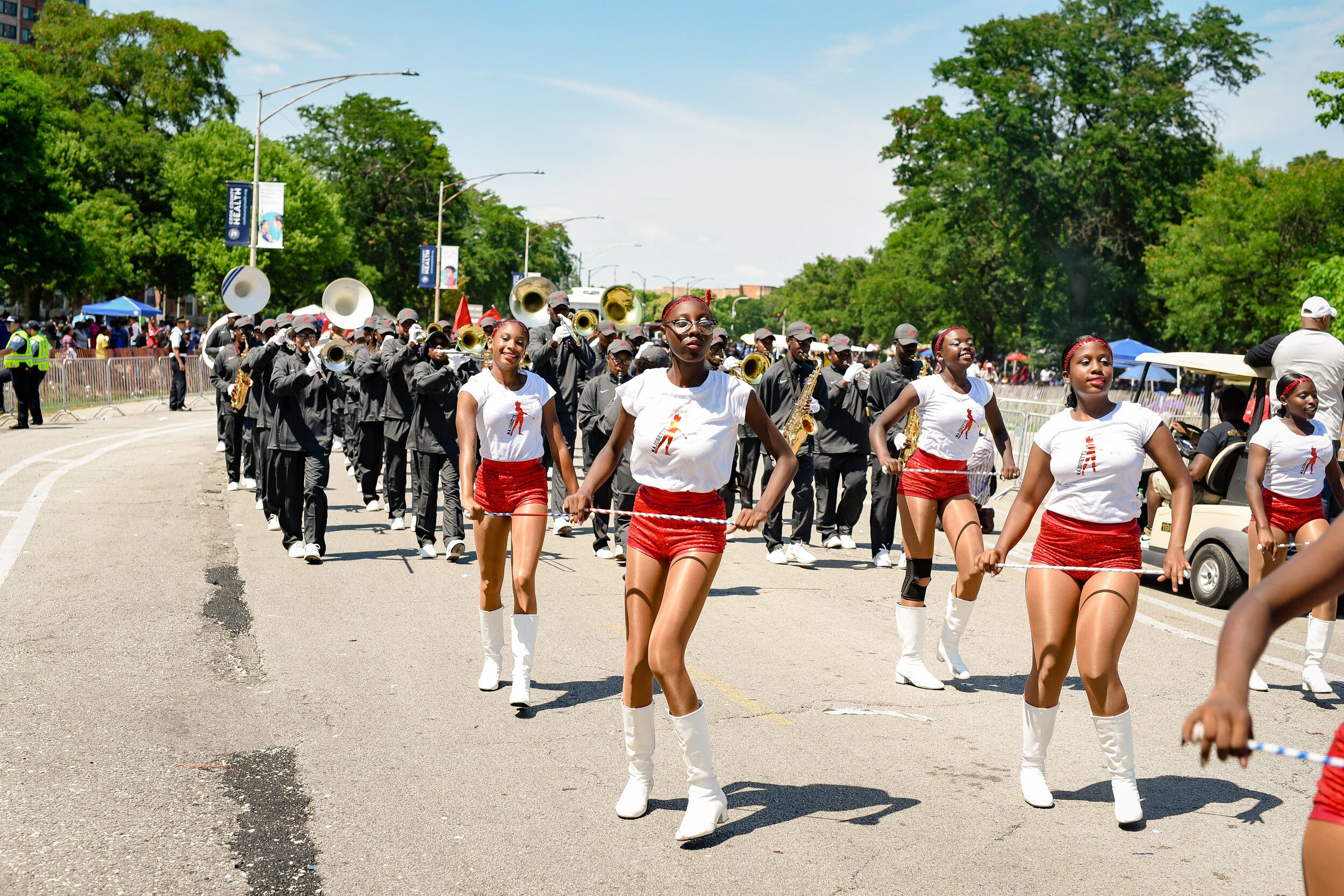A Crusader analysis of health data shows COVID-19 cases are rising in Chicago’s Black neighborhoods as the return of the city’s iconic Bud Billiken Parade looms just two weeks away.
But with vaccinations still below average in many Black zip codes, questions remain whether the nation’s largest Black parade, which draws 250,000 Blacks to Bronzeville, should go on as planned.
The rise in cases is also a concern for the annual Black Women’s Expo, an indoor convention that attracts 25,000 people to McCormick Place. Held annually in April, this year’s event has been rescheduled for August 20 to August 22.
COVID cases are also rising in zip codes on the North Side, fueling calls for Mayor Lori Lightfoot to cancel this year’s massive Lollapalooza music festival in Grant Park, where a total of 400,000 people are expected to attend the four-day event. No masks or restrictions are required for guests, who must show proof of their vaccination status. Unvaccinated guests must show proof of a negative COVID-19 test to enter the festival site.
So far, Bud Billiken parade organizers have yet to announce similar requirements for this year’s event. The need for such precautions is even more critical for the parade that is attended by spectators who live in zip codes that have much lower vaccination rates than those attending the Lollapalooza music festival. The current conditions are fueling concerns that the Bud Billiken parade will become a COVID-19 super-spreader event.
Since April 2020, the Crusader has maintained a weekly COVID database of Chicago’s 57 zip codes. Of 19 Black zip codes, 11 are experiencing a rise in COVID-19 cases. But an ex- amination of the latest health data on July 23 revealed that COVID-19 cases are rising in 49 of the 57 zip codes, the most since April 9, when the disease climbed in 50 zip codes. On that date, COVID-19 cases were rising in 18 of 19 Black zip codes.
In May, COVID-19 cases declined in Chicago and other cities as vaccinations climbed. The diminishing momentum of the disease fueled efforts to reopen Chicago as Lollapalooza, the Auto Show, and the city’s festivals announced their returns this summer after being canceled in 2020 because of the pandemic. The Bud Billiken parade was one of the summer events canceled, now preparing to return in 2021.
Fast forward to today. The Delta variant is driving an increase in new COVID cases in Chicago. Chicago this week added nine states to its travel advisory. And with the lowest vaccination rates in the city, Black neighborhoods remain extremely vulnerable to a new surge that could lead to some of the highest death rates in the city during the pandemic.
Health care experts say the Delta variant is believed to be twice as transmissible and deadly as the original coronavirus. The Delta variant originated in India in May, caused a huge surge of cases and deaths in that country, where over 414,000 people have died. But last week, NPR reported that the death toll could be as high as four million, as experts fear many undercounted fatalities.
The Delta variant is causing a surge in cases in many southern states, Missouri and in downstate Illinois in the predominately Black city of East St. Louis.
In Chicago, the 11 Black zip codes where new COVID-19 cases are rising do not include zip codes in Englewood or Bronzeville, where the Bud Billiken parade originates. However, data show that new COVID-19 cases are rising in 60637, which includes Washington Park, where the Bud Billiken parade ends.
Data shows that new cases are steadily rising in South Shore (60649), West Pullman and Roseland (60628), Auburn Gresham (60620), and Morgan Park (60643). Residents from these neighborhoods are among the hundreds of thousand spectators who come to the 92-year-old Bud Billiken parade every year. These zip codes have some of the lowest vaccination rates in the city. As of July 26, the vaccination rate in South Shore was 37.3 percent. In Auburn Gresham, the vaccination rate was 39.4 percent.
Bud Billiken spectators also come from five Black zip codes that have the lowest vaccination rates in the city but are experiencing a surge in cases. But that can change in two weeks as the Delta variant continues to spread in Chicago. Those zip codes include Englewood (60621), where just 34.9 percent of residents have received at least one dose of the Pfizer, Moderna, or Johnson & Johnson vaccine.
In Austin (60644), the vaccination rate is just 38.8 percent. In West and East Garfield Park (60624), the vaccination rate is just 39.2 percent.
Bud Billiken organizers are moving ahead with the parade, Antawn Anderson, executive administrator of the Robert Sengstacke Abbott Foundation, which produces the parade, said in a statement.
“We have been in constant contact with city and state officials regarding CDC guidelines for outdoor events. We also will be providing COVID-19 testing and vaccinations along the parade route and in Washington Park via our partners listed below.”
Vaccination vans are scheduled to be at the parade. Organizers say the layout of the parade and festival will support COVID-19 compliance. A stage will be provided for youth teams to perform, especially those that are not in the parade.
The Bud Billiken Parade and Festival will take place at 10 a.m. on Saturday, August 14. Organizers have announced a modified, bigger parade route.
Originally planned to be held be- tween 51st and 55th streets, the parade route is now 10 blocks long. The start point of the Bud Billiken Parade is 45th and King Drive. The parade continues south on King Drive and enters Washington Park on Ellsworth Drive and continues to the endpoint at 55th Street.
The staging area begins at Oakwood Boulevard and Cottage Grove Avenue. It extends to King Drive and continues south on King Drive to 45th Street.
The theme for the parade this year is “Back to School, Back to Life, and Back to Bud Billiken.”






